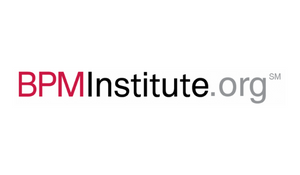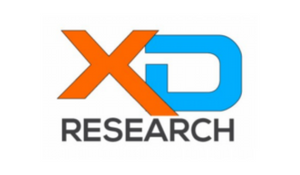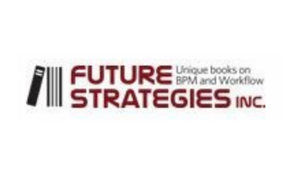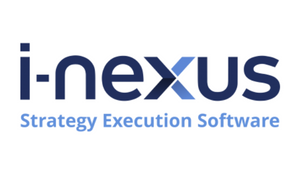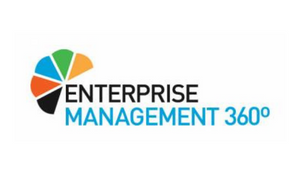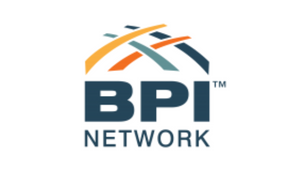

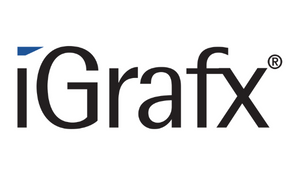

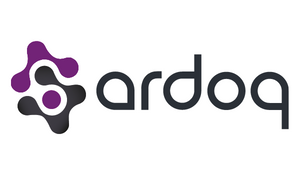
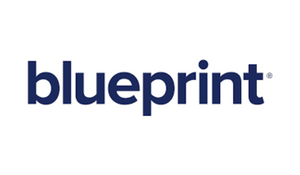
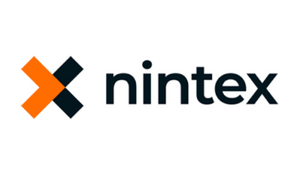
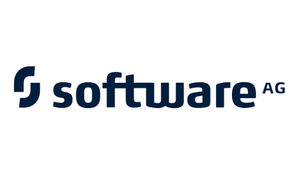


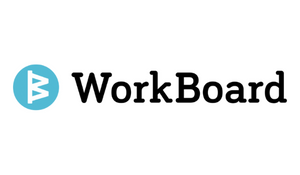
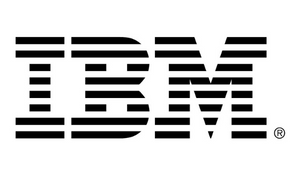


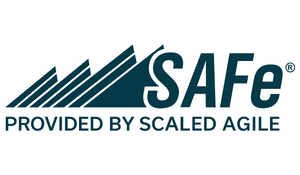





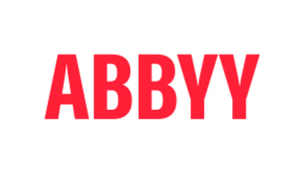





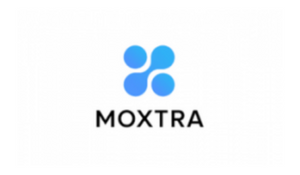
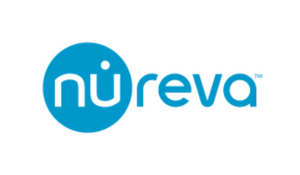
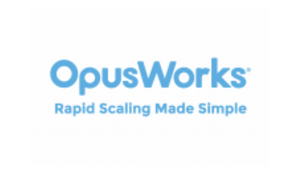
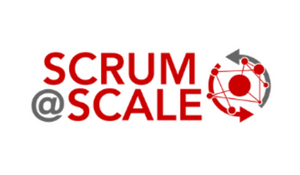


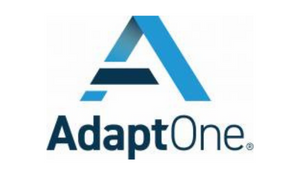
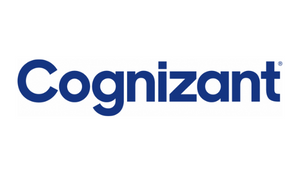

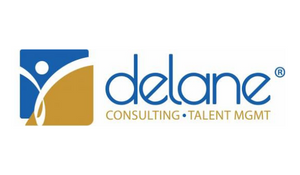

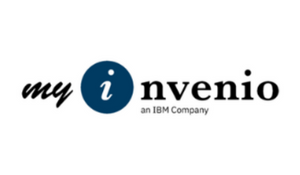

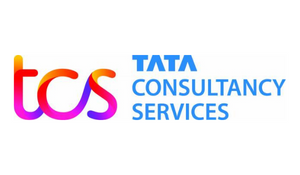
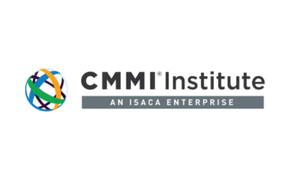
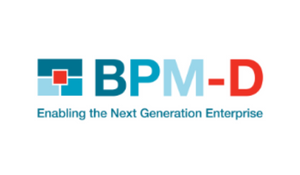

Courtesy of Dell Technologies' Bill Wong, below is a transcript of his speaking session on 'AI-Powered Digital Transformation' to Build a Thriving Enterprise that took place at Business Transformation & Operational Excellence Summit in Financial Services Live.


Session Information:
AI-Powered Digital Transformation
AI is fundamentally changing how businesses operate, redefining the way people work and transforming industries globally. In pursuing digital transformation initiatives, organizations need to capitalize on the opportunity with intelligent algorithms and models, improved processes, a data-centric culture, and an optimized software and hardware infrastructure to realize its full potential.
Gain an understanding of best practices for digital transformation initiatives and how AI and data analytics can be leveraged to deliver business value. Review the latest trends and directions in the AI industry, key challenges, and best practices for adopting AI-based solutions.
Topics include:
Session Transcript:
Long is the AI and data analytics leader for Dell and his current role as a, the AI in data analytics practice leader for Dell.
He, he works with technologists with Intel, responsible for Canada, he's the author of a number of books on data analytics, and data management, and also a quarterly newsletter on artificial intelligence. He's education includes an MBA in finance, and he has thoughts, numerous, numerous courses at the University of Toronto Continuing Education Program, which includes strategic IT planning and analytics for financial services deal. What an honor to have you with us. Very much looking forward to your presentation today.
Thank you, Jesse.
OK.
Excuse me, folks, and I apologize for my technical difficulties on my laptop.
Thanks for joining.
And you should be.
And my laptop is currently thinking.
So, what we'll take you through today.
The quick agenda is an overview of what's happening in the finance world, and the AI world, and how they come together, and share with you best practices.
First, a little bit about where I'm from is Canada, and why I bring up Canada. Because Canada is the first country to announce a national AI strategy. And that was back in 20 17.
And, as of December, 2020, 30 countries now around the world, identify that AI is strategic enough to define a national strategy.
So, I'll just let you know that. Your presentation Right now is not shown. So, if you could go under sharing and show a screen to the audience.
Hoping my screen is showing naughty, Yeah, yeah, yeah, So, make sure you in presentation mode, and then under the Sharing tab, Pick this screen under the show screen button.
That's that.
That has the manner in which that the presentation is showing.
I'm there.
And it looks like my laptop is spinning a little bit.
Yeah, There may be a little bit of a delay.
So here's one suggestion, bill. We can if it's OK with you, we can just go on without sharing the the presentation at this point of the audience. And then maybe we can send to the audience a copy later on, and you know off the an overview with you will of the presentation.
That's fine.
I've presented enough times that I don't really need the slides in front of me, Right. Yeah, anybody, you may be able to use even your and then not transmit them. Because it seems like there's something there with the interface that's not working out for you right now. So, if you, if you're able to use them on your side. Feel free to go ahead, and I'll just mute myself here.
 Let you carry on, kept going through an hour bill Bill?
Let you carry on, kept going through an hour bill Bill?
But it's just not showing the right screen. So go under the Show Screen button, and pick a different screen that only shows your presentation if you could.
Zach, right now the version that's showing shows the goto Webinar interface on it as well. So there should be a clean version in there. If you pick under the Show screen button, there should be a clean version that you shouldn't be able to share that clean version.
That one, that is the clean version. And if you could go back to page number one, I think we'll be in good shape.
OK, right now, we see the transformation index over the years, Canada and Artificial Intelligence.
An agenda.
Not yet, it's not showing agenda yet.
Agenda, now, now we have the agenda.
OK, so again, apologies for the technical glitches on my laptop. Typically doesn't happen, but I have some new equipment here.
So, I'm going to briefly spend time here on what's happening in the industry, both from a financial services and AI, talk about some of the key challenges, what people are investing in, in trying to adopt AI.
And a little bit about multi cloud deployments, that's getting a lot of interest today.
Regarding Canada, I mentioned before, for a lot of countries, I believe that AI will be a strategic force for people in their lives, in government, et cetera. They've announced national strategies, and Canada was the first to do this.
And up to 30 countries have done that now.
Now, financial services typically is one of the top industries when it comes to adopting new technology and AI is no different.
What Dells done is, they've done surveys every two years, talk to C level execs to see what is their adoption rate for digital transformation?
Digitizing their services.
And not surprisingly, finance leads the pack with most industries. So you don't find too many which we call digital laggards.
 Really just can't exist in financial services unless you're heavily into IT and optimizing your processes with technology.
Really just can't exist in financial services unless you're heavily into IT and optimizing your processes with technology.
Where they're excelling here.
And if you want there is A Yeah, I think a 100 page PDF document, the Dell site that goes into excruciating detail of the survey, but at a high level here, financial services scene as a leader in many of these fields here, I'm going to just focus on a few here.
Um, digital skills, 9%, it's not surprising that when you compare versus the global averages, you'll find that financial services is ahead of the curve and adoption.
Some of the challenges that finances services still face is that extracting data to produce valuable insights is still a bit of a challenge here.
Not not surprising.
five G, although there's a lot of hype in five G, it's not a technology that a lot of financial services are eager or a rush to implement.
Some of the stand out investments here, digitizing the banking services or wealth management services.
Should be no surprise that AI is higher financial services, as a technology to adopt.
And multi cloud, many, I look forward to multi cloud deployments for AI.
Now, financial services, again, lead the curve in understanding the importance of analytics, and an AI, and how it can change the game here.
I've seen some surveys, like from McKinsey that claim $1000 billion impact to the business within a year.
Some say might be overhyped, and there's probably a bit of that going on.
And then they choose this puzzle: We somewhere a little bit more conserve ESLint.
But no doubt about it. AI, Alexs, very important in this industry.
Now, AI is getting to be such a pervasive technology from Gartner. They're emerging technologies. It's impacting hardware, technology. There's a separate hype curve just for AI.
In emerging technologies, you also see a number of new technologies coming out.
Why these things here? Composite generative, AI.
These are new technologies to adopt And proliferate new technologies such such as composite AI, where AI is used to develop new faces.
So you'll see faces, I've never, never really seen before.
Now, in financial services, there's a wealth of applications that we've seen AI deployed.
In my experience with financial services that I see a customer experience, customer support, tend to lead the pack, whether many are using AI to enhance security.
And slide detection, I guess I've been coming.
one thing I haven't seen a lot is IOT, except maybe in insurance, but safe to say that AI is many different ways that AI can be implemented mastercard. So this is a true story. A few years ago I was in the Sea talking about AI.
And somebody came up to me and said, use a mastercard user.
And he was bought something with this card as ****** chips or something for a long road trip.
And about an hour later, when he was driving, he stop at a gas station.
And he used as mastercard fill up the tank or pay for the gas.
And to his surprise, it was rejected.
And it worked an hour ago, just wondering why an hour later, it was rejected.
So he called mastercard mastercard totally said, well, yes, we do have record that you used it in the city, and then we rejected it.
Because technically speaking, you really shouldn't be at this new location using that card.
And he had a good laugh about that, and said, OK, sir, not really a false positive, and I get that, and he admitted that he was feeling a little bit.
Technically, yes, he should have been there.
Well, guess about time.
So this is an example of health bar.
Technology has come and tried to make sure that nobody uses your credit card and authorize.
Now, most of you would recognize these company icons.
The one here on the bottom here belongs to a company called Graph Core Graph Core.
It's a new company, chip company, and they build chips specially designed to run deep learning algorithms really quickly.
Here's the spectrum that people have for AI accelerators.
On the far left, my left at least, you have CPUs and general purpose, compute, resources, predominantly dominated by Intel and AMD.
The reason why I highlight AMD is the past few years the market share than AMD has been improving and, unfortunately, at the expense of Intel.
So the financial services, to score these industries, where faster is better.
And so we still have a great relationship with Intel.
But worse, the stealth strategy is really too place our bets across all competing platforms. So we do have strong relationship with AMP.
Nvidia is the £800 gorilla, I call them for cheating processing.
Very important to optimize the algorithm using deep learning.
Algorithms.
FPGAs are field programmable gate arrays series, deploy in industries such as retail manufacturing.
We have solutions there as well but yeah, all the vendors on the right here.
This is where all the startup capital being invested in and you see lots of new chips here, now, these ASICs, what's called Application Specific Integrated Circuits, are optimized chips to run AI algorithms for simply deeper and the room faster, cheaper, consume less power, and this is where the growth is, especially IOT devices.
Um, I'm just going to spend a little bit about shared by in finance, especially hedge funds. They've been kind of the leaders from applying new types of analytics over time.
Mmm hmm, I'm going to talk a little bit more about to, get on the right, but high frequency trading way.
It has begun to use AI algorithms.
And, again, the financial industry has been using Monte Carlo.
Analytics here that you see on the left to do predictions and your high-end financial services firms use those fuels into a predictive model or stock prices.
 What's that led to is you're seeing folks, folks like Dell, create platforms, mercies, type panels together, AI, analytics, along with things like HPC or it's called ....
What's that led to is you're seeing folks, folks like Dell, create platforms, mercies, type panels together, AI, analytics, along with things like HPC or it's called ....
So, this box that you see here on the right hand screen is a platform that can deploy algorithms for ECMO Carlo analysis to high performance evaluations.
Plus of all that software that can be deployed for AI, like Kubernetes, support, etcetera.
Relatively new industry, as far as I know, don't SEO.
A vendor that has a consolidated platform, at least.
Both the screens, sir, I guess quadrants are new this year, 2021.
What I want to highlight is the one on the left here, and for the first time in this magic budget, they placed machine learning.
What we call up platforms to accelerate your development efforts.
They place the cloud vendors, AWS, Microsoft, Google, along with the on prem vendors, and so on.
Based on their completeness, the development platforms, it would seem that the on prem vendors still have an advantage today over the cloud.
Now, alternative data, if, let's say, about 10 years ago, big data was a term that was introduced to represent. And what we have here, a very large datasets, that you consume processing.
Things like every stall tree that was ever done analyze that last year.
And I would represent like multiple terabytes of data.
And there are algorithms that process, that type of data. Now, what's kinda new in the last few years, is this term, what we call alternative data here.
A lot of it is still based from our publicly available information, kind of business processes, like earnings calls, but some of this new data is what individuals create, let's say, like, on social media, and there are algorithms.
There are people paying to get access to this kind of data to help them create new outfits for stocks that they're tracking.
So can, and of course, in this case, law, the hedge funds invest in this technology.
Can I get an edge on getting additional type of data that gives me insight on their future productivity output? That's why I see here on the upper right satellite imagery.
Can you sell energy to see, if they're working overtime?
Can I speculate, It's contribution to them.
It's revenue.
So let's say it's a new field.
And the challenge in consuming big, what they call it big data alternative data, is more and more firms we're seeing is they're ingesting event based or near real-time data, and that's new for a lot of people.
So usually it's historical, lots of data, but now it's more and more, it's getting to be real-time.
So this chart is a little cluttered, but it's, it's meant to say that there are lots of choices.
Lots of vendor offerings here, to take data, to transform it, and make it usable for the people that we have here on the right.
Um, a best practice that we're seeing right now is, rather than put everything in the cloud, which a lot of firms have met, or doing that, without any question, folks are standing back and wondering, OK, does this application, does it make sense to put this in the cloud?
Some of the business questions I'll ask the audience, question is like, where does the data is? Does it make sense? Put it up there.
Do I have better security locally, on prem?
Not surprisingly, AWS, Azure Google are the top three are public cloud vendors.
And Oracle's based on this data, was number four.
And Dell, or v.m-ware, was fifth.
And we're hoping to improve that this year, with offerings to support both Google.
And, sure, now this slide is for your reference, and I didn't make it complete to include things like security. I assume that's a given look about this, and multi cloud.
So, the purpose of this is to identify those technologies if you're gonna build analytical or AI type apps.
And these are the offerings from the major cloud vendors, from Dell, and from open source.
So, for example, I'm working with the customer today, and they're challenged in trying to corral everybody's AI.
And if you talk to your I cheat people, it's not surprising that they'll get one line of business and financing, I need $250,000, bring up the platform, so we can develop this application.
Then, wealth management comes in and says, I need $5 million to do that.
So, IT departments are challenged, special financial service with all the demand.
Resources is how can I streamline this?
How can I, I attempt to consolidate this?
And so, again, what we're moving toward is, a, has a service model, different environment, where you deploy hardware and software with platform service, This data's versus relatively new.
We find a lot of day scientists spend a lot of time trying to figure out try to wrangle the data to make it usable, divide it out. So, we anticipate lots of demands for this type of service.
Then, of course, like I showed you for those data science platforms, many folks are looking into these to increase productivity.
.png?width=742&name=Screenshot%20(4).png) But overall, today, I would say most people are using machine learning frameworks, such as TensorFlow, pytorch today.
But overall, today, I would say most people are using machine learning frameworks, such as TensorFlow, pytorch today.
Um, a best practice in developing AI applications is to step back first and to define a strategy.
And if you're an Enterprise architect, you may recognize this, this strategy technique, they're adapted this for AI, and this is something that we share and do jointly with our customers at no charge.
What we do to four companies was lots and lots of data need lots and lots of compute resource, is we have a center located in Austin that I've used with a number of my, my customers to test it out and to give better ideas on configurations for compute platforms where they're sites.
Now, here's a few examples of video analytics.
And in financial services, some of the things that we're starting to see now is using video analytics, where people make loan applications.
And then to, to measure micro expressions.
So unfortunately, it's getting down to that technology that people are using that today for asynchronous job interviews.
So, so some sites now, you're not really talking chamber. You're just producing a video, or person, and potentially, algorithms to assess.
And recognizing that we have a number of labs worldwide, where we work with vendors.
And there's lots of startups, vendors, and established vendors building applications for a financial service and test those all out.
So, last slide here is best practices that we see.
And this is what differentiates the leaders, we say.
You see, and let's say in financial services, is, number one, is to have a culture of using data as a corporate asset, And as a corporate asset, it's a shared resource.
It's not silo shared amongst online sicknesses.
The other best practice, I can't emphasize enough, is to adopt an architectural approach approach, get the key stakeholders, establish a vision strategy of why you want to advance AI.
And then, when we post this up, there'll be links here to additional information, etcetera.
Back to you, Joseph.
Fantastic, Bill. Fantastic.
You have covered quite a bit of quite a bit of ground here on the multiple technologies and strategies that are available. I ask the audience to keep submitting your questions, and I will pass it on to Bill in real time here. And, so, ask your question, How are you using artificial intelligence right now in your organizations? What a level of development that you're at the beginning, Are you a more advanced user, regardless of where you are in the journey? Asked questions, because Bill has experienced the whole thing from, from, from beginning to end. So, that would be great to have the perspectives directly from, from a global expert, in artificial intelligence.
So, Bill, the first theme that I've seen emerging here, and I'll keep looking for others, has to do with governance for AI. And maybe that is to a specific maybe it's ordinance for data, analytics, and governance for at a higher level than just AI. But, if you'll look at some of the best practices that that you have experienced in the industry, How, how do you see the governance for analytics and AI being established organizations to set them up for success?
Hmm. That's a really great question, and a very important question, especially in financial services.
So, I'll take a, try to give you a few examples here. First, why is it important?
Especially in banking, you want to have governance so that everybody is treated the same, and the same decisions are made based on data, not on a personal assessment, on whether or not this person can pay. That's not something that you can replicate to another person.
So, in order to do that, I mentioned before you have to be data driven.
What I mentioned before, in one of the slides I showed on data as a service, when we take in data, what this data service does is, it provides governance and buy, providing it by cataloging data.
So it knows when it captures data, and throughout the life cycle, there's a lineage that a lot of people look for.
Then there's also on explainability of your algorithm.
So why did you make that is, Why was that person selected to receive a law was after tonight?
All of these things need to be tracked.
Automated.
And the best practices are to use automated tools to do this, rather than manual, which is possible but very, very painful.
It's a long time to do.
So there are a number of tools that are out there and I've pointed out one example is Booming.
There's no calibre.
These are tools that people use when they build a data platform, to support analytics, that track the life cycle of the data as it comes in, how it's used, and what decisions then records are here with the result of the decision with this data.
So, it's important to track that and as new loans get accepted or rejected, can take that data and put it back and feed it into the model.
So, I hope that kind of address its very important Financial services.
Best way to do it.
There are tools there and neat things to do, is like track things like ... and how that data is used throughout the whole process.
 Great Coverage. They are great coverage there, the next, there are a number of questions coming up here. And I'll just pick the, a few of them, keep submitting your questions. This one comes from Steve Sponseller, Steve, great to have you with us. Steve was actually on the author on, on, on the book about patents called the Patent Code. And so very works of a lot of technology companies around the world. And Steve's question, should they has to do with the fact that the financial services industry is heavily regulated and how the companies satisfy this regulations.
Great Coverage. They are great coverage there, the next, there are a number of questions coming up here. And I'll just pick the, a few of them, keep submitting your questions. This one comes from Steve Sponseller, Steve, great to have you with us. Steve was actually on the author on, on, on the book about patents called the Patent Code. And so very works of a lot of technology companies around the world. And Steve's question, should they has to do with the fact that the financial services industry is heavily regulated and how the companies satisfy this regulations.
Why are you using AI?
Well, thanks, Steve, for the question. Yes.
When I've worked with financial services firms, when we talk about strategy for AI, usually three big things come to mind on deploying applications. one is grow the business.
two is typically has to do with customer experience.
And three, its compliance is, it is, first and foremost, very important in everybody's mind.
And I think AI can help enforce a lot of these things.
So we digitize compliance requirements into algorithms.
So in some ways, AI can health insurance to that. So you don't remove that human factor.
And it doesn't really cross the line, Right?
Case in point when you have these rogue traders who break off the rules about having the reserved funds and that's happened to pass, AI can take those restrictions, limitations, collum rules, into effect, so that those things are not broken.
So, in many ways, um, AI can certainly augment the trader and prevent them from making those mistakes.
Very good, thank you, Thank you Bill for that. The other theme that has emerged here is around the definition of AI itself, Bill. It's not often that we have a global expert like you available to answer these questions directly, so we want to take advantage of it and get a more definitive answer on AI if you will. And what I mean by that is that there's this whole spectrum, where one side you have, you know, AI in, and the work that's being done by deep learning, and the cognitive algorithms, and things like that. And then the other spectra, you have people who are publishing reports sometimes talking about using AI. And when you look at the report, they just did, like a regression analysis. It's not my field AI. So, where, where does the state of AI currently happening in the world? In terms of practical standpoint, and what's being used, the cognitive portion of AI, how much has it been develop at this point?
Wow.
As much as I'm a big fan of the use of Analytics and AI, I'll be the first in it and the first to point out when AI is overhyped.
And I think in the evolution of AI, AI is still very immature.
The applications are all deployed out there. They're great, but they're very narrow in scope.
Very simple day, the concept of general AI is still far off in the future.
We are so much smarter than AI. So many ways.
It takes rooms full of computers, or AI to make a prediction.
A diagnosis, sometimes where our brains you know, electricity of a light bulb can outperform the eye in some respects.
Yeah, AI can be great in finding uncovered patterns, and it's almost impossible for humans to do.
So, um, so there is that added outage.
So, yeah, again, it takes case by case a one vendor I'm not going to call out.
But one that I used to work for it would say, hey, we're going to cure cancer.
And for me, it's great to have what we call moonshots.
But no, you have to put some kind of parameters on how realistic that is timeframe.
So I think definitely AI is changing people's lives today.
And when people are concerned also about the effect and the impact of AI, I think for Office jobs, AI, it's easier for AI to actually augment, sometimes, duplicate those jobs.
Folks, hearing AI, if you're, if you lay down bricks, if you make ice-cream cones, that's actually tougher for AI to do.
Those manual tasks are actually tougher, and so, in a way, you would think that was kind of reverse as such advanced technology, that that's not the case.
So, yes, I think it's great to ask that.
regression analysis is a machine learning algorithm.
The AI that is really transforming things tend to be the deep learning algorithm, so that the song, the slides I showed about, that, that's kinda where a lot of the research is really focused on.
So, I hope that, that's helpful, that, that, that provides a good background, bill. The next question here is an interesting question, kind of a nationwide level question, from a niche could Thare. ... asks, how does the canadas AI strategy and standards for the country compare or differ from those that have been established in the US and UK, and China?
Let's just take the US. And China was kind of the big juggernaut. So a lot of people talk about it.
Unfortunately, these are the who has really did what I would call a national strategy.
They can't deny the power of the US in terms of innovation, but they really didn't try to get people together to work towards consorts cause, But that was, that may change. There's a new administration, there's certainly a new focus on that.
Um, in Canada, what we've done, yes, we do.
We've developed three centers and went out in Quebec and Ontario, um, went out west, and their charter is to help companies consume these technologies, help startup companies get up and running.
They've also helped establish research centers. So, we see a lot of commercial companies set up AI labs in Canada.
Now, we're such a small fraction, um, when it comes to AI revenue.
But Canada is often most cited for its research.
The US.
You know, I think we continue to be a dominant player.
However, China is what we call it, the other end, very focused, very centralized, government pumping, billions of dollars in there, and they probably, the leader, when it comes to deploying video analytics, one might question whether it's ethical or not.
 But they're going to be leading and gathering a lot of information there, and seems to that they're trying to push other companies within China, too, to use that.
But they're going to be leading and gathering a lot of information there, and seems to that they're trying to push other companies within China, too, to use that.
Um, where, as in the US, Canada, we have a different political system might be slower, but, again, probably more acceptable manner going forward there.
So, you're right.
The question people do have kind of different strategies, kind of based on their resources.
The other country, I see, doing a lot of work to keep an eye out for, is India.
They've also invested a tremendous amount of money, They have a huge brain trust, as well.
That's excellent. And one final question here that we have time for. Kind of. tagging along on a comment made by Anna Martinis first. She says, Amazing express do. They thanks for sharing such insights on, through your slides, as well, a lot of interesting market level, information about technology.
But, have a specific question is, you know, just your insight or on, can you share When Or, where should companies consider data transformation, Know, is that a signal that, you know you're ready for a data transformation? I mean, the business models can be, so, can vary so significantly. But, I think that her curiosity is around, when, when is the right time to really dive deeper into data transformation as part of your business transformation.
Yeah, that, it's a, it's a good question.
It's a tough question, because data transformation, what we have found, is it's unique for every company.
So, in your company, it'll depend on many things, like the skills that you have today.
one key indicator that we take a look at is, at your, your Executive Level, how committed are, they do have a Champion.
Have you been able to, let's say, narrow to a use case, A specific use case that would benefit the company to get people on board? And the thing to do, especially if you're new, is to try to scope it into something that's achievable something, realistic, not, but not, like, if you're a hospital, and you're going to cure cancer.
Baby steps, and data transformation will be one of those, critical and first steps before you can do AI.
You need to be able to manage your data, and then take the steps and transfer it. So it's usable by your audience.
So I hope that answers it. It is unique.
Bye.
Take well thought out stats and scope that. Don't.
A moonshot to be your first AI.
That's great insight. Starting small and scaling, and what creates value. In each step of the way. Terrific insights. Bill, what a pleasure to have you with us. Again, you've been with us in different conferences, and you and your expertise is so valuable to our global audience, thank you so much for taking the time from Toronto Canada to the world for sharing that expertise today.
Thanks again, to say, and thanks people for joining. Have a great day.
Very well, ladies and gentlemen, that was Bill Long, AI and data transformation leader for Dell. Wonderful to have him, again, with us on the financial services live and providing the specific industry perspectives.
As, as you saw, his presentation, if you go back and replay this, this recording later on, when you get the recording, Lots of tremendous insights about the industry and evolution of technology in the financial services industry on his presentation. So I would encourage you to go back and reveal those lives live a little bit more time. There is a lot of great information in there.
.png?width=742&name=Screenshot%20(4).png) Now, we're gonna wrap up this session. I think that, that our, our conference leader, Brian Wrathful has put a note under the chat that there is a little pop up that comes up on that.
Now, we're gonna wrap up this session. I think that, that our, our conference leader, Brian Wrathful has put a note under the chat that there is a little pop up that comes up on that.
If when you close the, use the Close button on the session and a pop up, there'll be a little survey that comes up. And if you have feedback on the sessions, please provide feedback on the sessions, on everything related to the conference that will help us bring you better experiences in the future.
Now, we're going to take a break now, we're gonna come back at the top of the hour and we're gonna wrap up directly from Frankfurt, Germany, with with Janet Salman, who is the Chief product on our management of Management accounting for S A P. And we're gonna she's going to be presenting to us the SAP's vision of finance transformation.
So, many great organizations around the world use sap as their ERP system in their organizations.
And we're going to learn directly from someone who owns the product and understands, you know, the current version and the future developments that that is that the product staking speak directly with you. So save great questions for Janet and I am very much looking forward to her presentation. And Now we will meet every one of you. Back at the top of the hour, See you back.

 Bill Wong,
Bill Wong,
AI and Data Analytics Leader,
Dell Technologies.
I have had the opportunity to work with customers around the world implementing strategic and analytical-based solutions leveraging data as a corporate asset. Experience with data-centric and cloud technologies from my tenure at IBM, Microsoft, Oracle, and Dell. Previous roles have included cloud and enterprise architect, consultant, product and performance benchmarking manager.
Currently, I lead AI and Data Analytics initiatives at Dell Technologies and spend most of my time supporting customers from the financial services, retail, public sector, healthcare, and higher education industries. Customer AI projects have included: jointly developing the customer’s AI strategy, assessing AI accelerators, developing AI and data best practices, benchmarking deep learning algorithms, and jointly developing the technology roadmap with C-level executives, data scientists, and/or enterprise architects.
I have authored a number of articles, whitepapers, books on strategic data-technologies, and a currently the author and editor for a quarterly AI newsletter. Courses taught have included database management systems, systems analysis and design, accounting information systems, and strategic IT planning.

View our schedule of industry leading free to attend virtual conferences. Each a premier gathering of industry thought leaders and experts sharing key solutions to current challenges.
View Schedule of EventsWelcome to BTOES Insights, the content portal for Business Transformation & Operational Excellence opinions, reports & news.
-------------------------------------------------------
Search for anything
Insights from the most progressive thought leaders delivered to your inbox.
Insights from the world's foremost thought leaders delivered to your inbox.
Being a hero is all about creating value for others. Please invite up to 5 people in your network to attend this premier virtual conference, and they will receive an invitation to attend.
If it’s easier for you, please enter your email address below, and click the button, and we will send you the invitation email that you can forward to relevant people in your network.
View our schedule of industry leading free to attend virtual conferences. Each a premier gathering of industry thought leaders and experts sharing key solutions to current challenges.
View Schedule of EventsWatch On-Demand Recording - Access all sessions from progressive thought leaders free of charge from our industry leading virtual conferences.
Watch On-Demand Recordings For FreeDelivered by the industry's most progressive thought leaders from the world's top brands. Start learning today!
View All Courses NowThe premier Business Transformation & Operational Excellence Conference. Watch sessions on-demand for free. Use code: BFH1120
Watch On-DemandInsights from the most progressive thought leaders delivered to your inbox.
Insights from the world's foremost thought leaders delivered to your inbox.
Being a hero is all about creating value for others. Please invite up to 5 people in your network to also access our newsletter. They will receive an invitation and an option to subscribe.
If it’s easier for you, please enter your email address below, and click the button, and we will send you the invitation email that you can forward to relevant people in your network.
Courtesy of Nintex Pty's Paul Hsu, below is a transcript of his speaking session on 'Improve employee productivity during and post-COVID by ...
Read this article about HP, Best Achievement in Operational Excellence to deliver Digital Transformation, selected by the independent judging panel, ...
Read this article about BMO Financial Group, one of our finalists, in the category Best Achievement in Operational Excellence to deliver Digital ...
Read this article about Cisco, one of our finalists, in the category Best Achievement of Operational Excellence in Internet, Education, Media & ...


